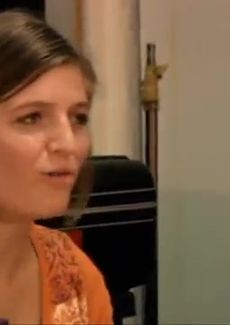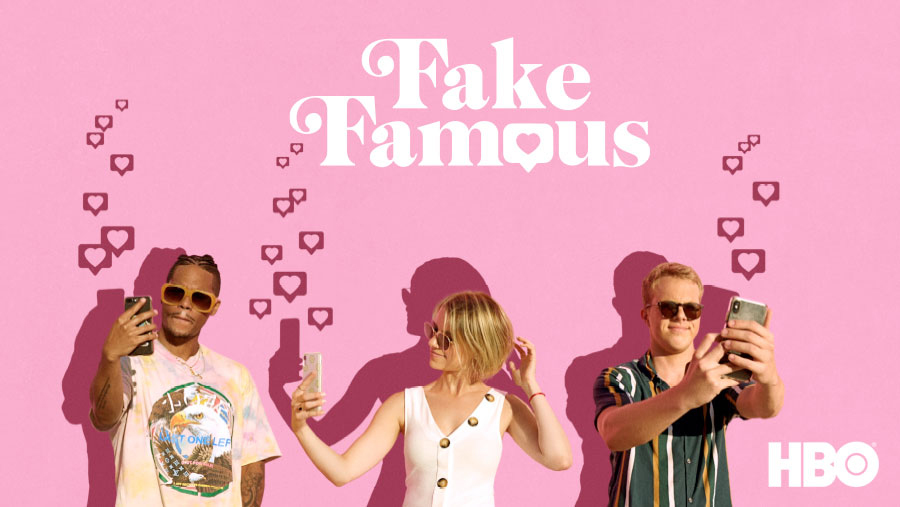 Try these videos to get started. Must be on campus or login with your COM account for off campus access.
Try these videos to get started. Must be on campus or login with your COM account for off campus access.
Want more on finding media? Try Articles & Media.
-
#Happy: The Dictatorship of Happiness on Social Media (52:32)
We spend hours on Facebook, Instagram, and Snapchat, seduced by their promise to be able to share our life and our opinions with the whole world. In this virtual world, everyone is happy. Everyone has perfect bodies and lives fulfilled lives in stylish houses surrounded by beautiful friends and family. Everyone shows off and everyone judges. But this irresistible quest for recognition can quickly turn into addiction, wreaking havoc on our mental health. And teenagers are the most susceptible. This program examines the real dangers of the “happycracy” promoted on social networks and hear from some of its young victims. Danny was 14 when he posted his first selfie on Facebook. But it didn’t get many ‘likes,’ leading him to take more and more in a desperate attempt to secure the approval of others. Soon he was taking hundreds of selfies a day. He stopped eating in an attempt to perfect his body. Then he dropped out of school and spent six months unable to leave the house, believing that he was so ugly, people would be afraid of him. Desperate, he tried to kill himself. It was only when Danny stopped using social networks that he was able to slowly recover. His is an extreme story but with the invention of the “like” and the idea of “self branding,” where everything must be validated by others to be real, the creators of social networks are changing our behaviours. Marie, 22 and with 4922 followers, is terrified of disappointing her subscribers. So she spends one day a week perfecting an image of living the perfect Parisian life. Hours doing her make-up and taking hundreds of photos to create the one image she will post. She breaks down in front of the camera and confides how vulnerable she feels and how desperate she is to be liked.
-
Cancel Culture Is Toxic: A Debate (01:04:04)
"Cancel Culture"—the effort to ostracize someone for comments or actions deemed offensive—has grown more pervasive in recent years. With the rise of Twitter and other social media platforms, people can quickly publicize such comments or actions and urge others to shun, or "cancel," them. Canceling can have serious repercussions, resulting in the loss of cultural cache, political clout, and even a job or career. Critics of cancel culture argue that it empowers digital mobs to police people's speech, invade their rights, and even endanger their physical safety. Cancel culture, they charge, erodes public discourse, inhibits free expression, and promotes censorship of unpopular ideas. Defenders of cancel culture dismiss these concerns, arguing that holding people to account for offensive—and often racist or sexist—comments is thoroughly appropriate. Such accountability can bring attention to prejudice and bigotry, they charge, and help break down ingrained systems of injustice, particularly on behalf of populations that have historically been discriminated against and exploited. Is cancel culture beneficial or is it toxic?
-
Dangers of Social Media (19:00)
Teens don't often consider the dangers that social networking introduces to their lives. The content they place on the networks can easily make them vulnerable to all sorts of threats.
-
Depression and Social Media (05:12)
Many teens enjoy social media. Many also face issues with depression or know friends and family members who do. Researchers have established a link between social media use and depression, finding that teens who spend three hours or more per day on social media are more likely to experience anxiety, bad feelings, or depression. It's believed this has contributed to a rise in major depressive disorders among those ages 12 to 17. Teens who engage in four or more hours of electronic device use daily may also be at increased risk for suicidal thoughts. Social media often creates false impressions, exposes teens to bullying and insults, or leaves teens feeling left out. There are many positive aspects to social media, but teens must think carefully about how they use it, what they choose to allow in their feeds, and who they choose to connect with online.
-
Facebook and Self Esteem (01:56)
Researchers suggest that Facebook can have a positive impact on self-image.
-
HBO: Fake Famous (1:26:46)
Followers, likes, comments – these are the currencies of fame today. But can the 140 million Instagram users boasting over 100,000 followers all be considered famous? To answer this question, former reporter for the New York Times and Vanity Fair Nick Bilton and a team of social media experts, casting agents, and stylists recruit three starry-eyed Los Angeles transplants to participate in a social experiment designed to turn everyday people with modest online followings into “famous” influencers. But as Nick showers Dominque, Chris, and Wylie with phony photoshoots and fake followers that are really “bots,” maintaining the illusion of online celebrity spirals into an unpredictable undertaking. Peeling back the layers to reveal what’s really happening behind the scenes of influencer “fame,” Fake Famous illuminates the good and bad results of our obsession with social media.
-
Is Social Media Bad for Kids’ Mental Health?: A Debate (49:10)
Social media platforms have become integral to modern life in the 21st century, shaping how young people connect and communicate with the world around them. Their impact on children’s mental has raised many concerns. Some argue that excessive social media usage can undermine adolescents’ self-esteem and body image. It also provides a venue for cyberbullying and online harassment, which can cause stress, anxiety, and depression. Defenders of social media argue that when used responsibly and with proper guidance, social media can enhance social and creative skills and help young people access valuable educational resources. It can also foster a sense of belonging among youth, especially those from marginalized communities. Is social media bad for kids’ mental health?
-
Social Media’s Addictive Power
Addictive social media. Athlete protests. #MeToo on Wall Street. Pythons threaten the Everglades. And Andy Borowitz on political ads.
-
Trolls: We're Coming to Get You Series (4 Episodes)
An expert team of troll trackers set out to help victims of cyberstalking. In this series, they meet celebrities whose lives have been made hell by cowardly cyberbullies. Using the latest surveillance technology, the team will trace and track down the trolls hiding behind their computers – before carrying out a dramatic face-to-face confrontation. It’s time for answers. Trolls, watch out, we’re coming to get you…
![]() Try these videos to get started. Must be on campus or login with your COM account for off campus access.
Try these videos to get started. Must be on campus or login with your COM account for off campus access.







